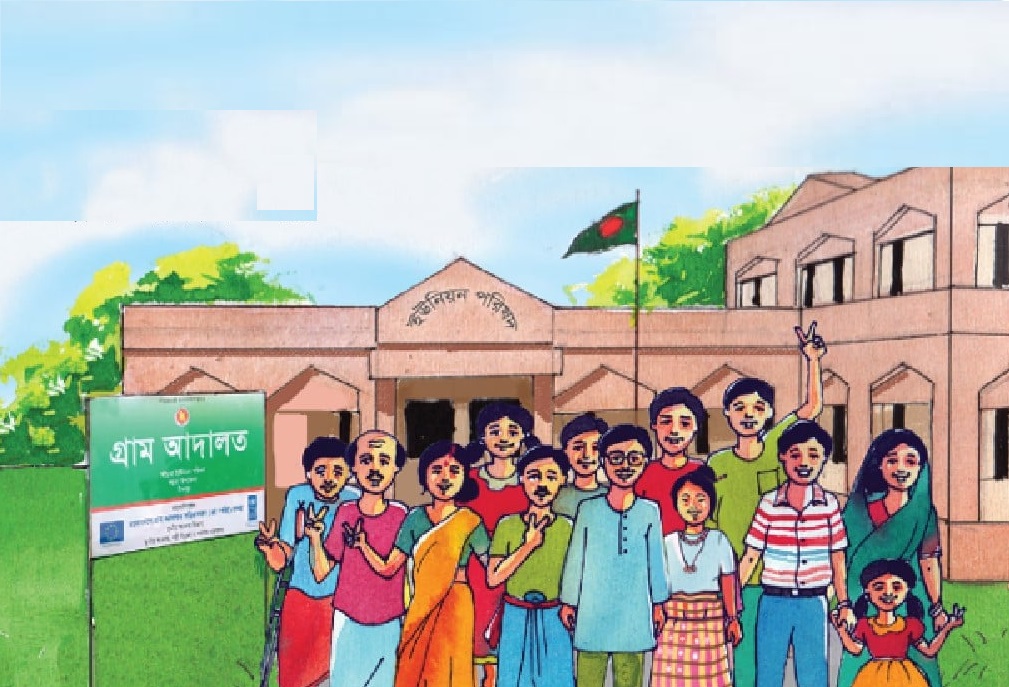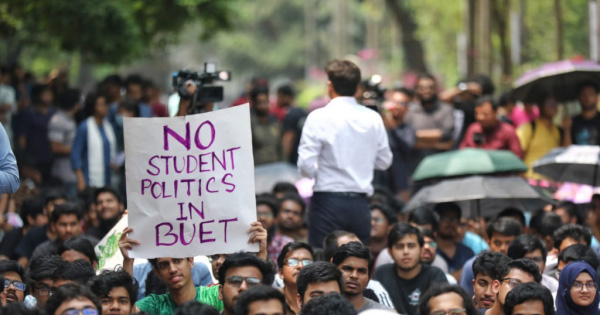Month of May in a nutshell-
Bangladesh’s government is increasingly resorting to harsh crackdowns, selective enforcement of laws, and violent repression to stifle dissent, control public narratives, and intimidate citizens. Three recent incidents—the arrest of a madrasa student under the Digital Security Act (DSA) for criticizing Prime Minister Sheikh Hasina, the fatal violence against workers protesting at the Banshkhali power plant, and the selective targeting of youth involved with LSD—illustrate a troubling pattern of excessive state control and an erosion of civil liberties. These cases signal a shift towards authoritarian practices that undermine freedom, safety, and justice for Bangladesh’s citizens.
**Case 1: The Weaponization of the Digital Security Act**
The recent arrest of Md Nurul Ajad, a madrasa student, highlights the Bangladeshi government’s aggressive use of the Digital Security Act (DSA) as a tool for repression. Ajad’s arrest followed a Facebook video in which he allegedly criticized Prime Minister Sheikh Hasina and her party amid the controversy involving Hefazat-e-Islam leader Maulana Mamunul Haque. Although freedom of expression is protected under international human rights standards, the DSA gives authorities wide latitude to arrest individuals for speech deemed “obscene” or “derogatory.” The law’s vague definitions allow the government to police criticism and dissent, creating a climate of fear that stifles free speech.
Instead of addressing legitimate public concerns or criticisms, the government opts to silence voices through punitive legal action. This authoritarian misuse of the DSA punishes criticism of political leaders and erodes the right to dissent, which is vital for a healthy democracy.
**Case 2: Worker Suppression at the Banshkhali Power Plant**
The violence against protesting workers at the SS Power I Plant in Banshkhali serves as a grim reminder of the government’s disregard for labor rights and human lives. On April 17, workers demanding fair wages, improved working conditions, and reduced working hours were met with lethal force, resulting in several deaths. This violent crackdown is a disturbing reflection of the government’s prioritization of corporate interests and foreign investment over the safety and rights of its own citizens.
Ain o Salish Kendra (ASK), a prominent rights organization, has filed a writ petition with the High Court seeking a judicial inquiry into the killings and accountability for the perpetrators. Yet, the fact that legal recourse is even needed to demand accountability for such an egregious violation of worker rights indicates how state power has increasingly been wielded against the interests of its citizens. The government’s inaction in providing justice further reinforces the culture of impunity for those who commit violence under its banner.
**Case 3: Selective Enforcement and the Targeting of Youth**
The recent arrests of university students found with LSD reveal another layer of selective, overreaching law enforcement. Hallucinogenic drugs are undoubtedly dangerous and illegal, but the intense focus on these cases appears to serve more as a public display of state control than a concerted effort to address larger public health and safety concerns. The use of resources to target and prosecute youth, many of whom are already facing societal and economic pressures, raises questions about the government’s priorities. These arrests reflect a broader pattern of selective enforcement aimed at maintaining control over certain groups, rather than addressing issues equitably and effectively.
This form of selective targeting not only fails to address the root causes of substance abuse among young people but also further alienates and stigmatizes them. In a country where economic instability and political repression are rampant, it is concerning to see the government invest its efforts in punitive measures rather than supportive or rehabilitative policies.
From the arbitrary enforcement of the Digital Security Act to the suppression of labor rights and the selective policing of youth, these cases underscore a troubling descent into authoritarianism in Bangladesh. Rather than ensuring justice, safety, and freedom, the government is actively curtailing civil liberties, silencing dissent, and prioritizing corporate interests over human lives. Bangladesh’s leaders must reconsider their approach and prioritize the protection of rights, freedom of speech, and equitable law enforcement. To restore public confidence and uphold democratic values, the government should reform the DSA, ensure accountability for violence against workers, and adopt a more balanced, compassionate approach to youth concerns. For Bangladesh to thrive as a true democracy, it must protect the rights of its people—not punish them for speaking out.






